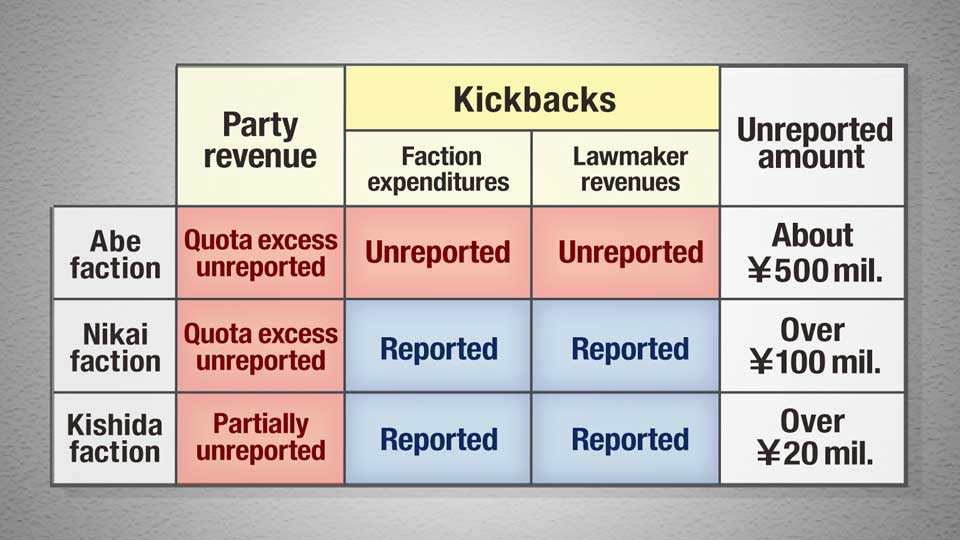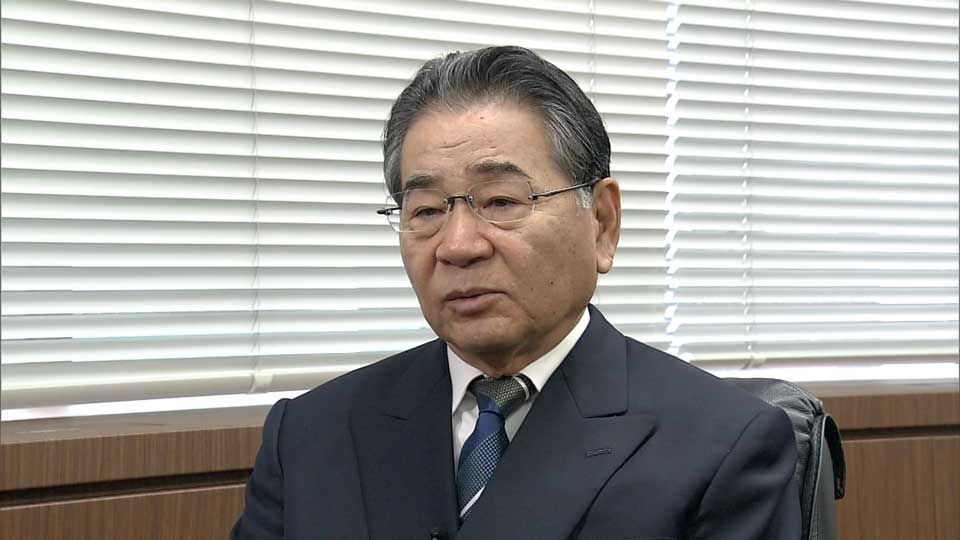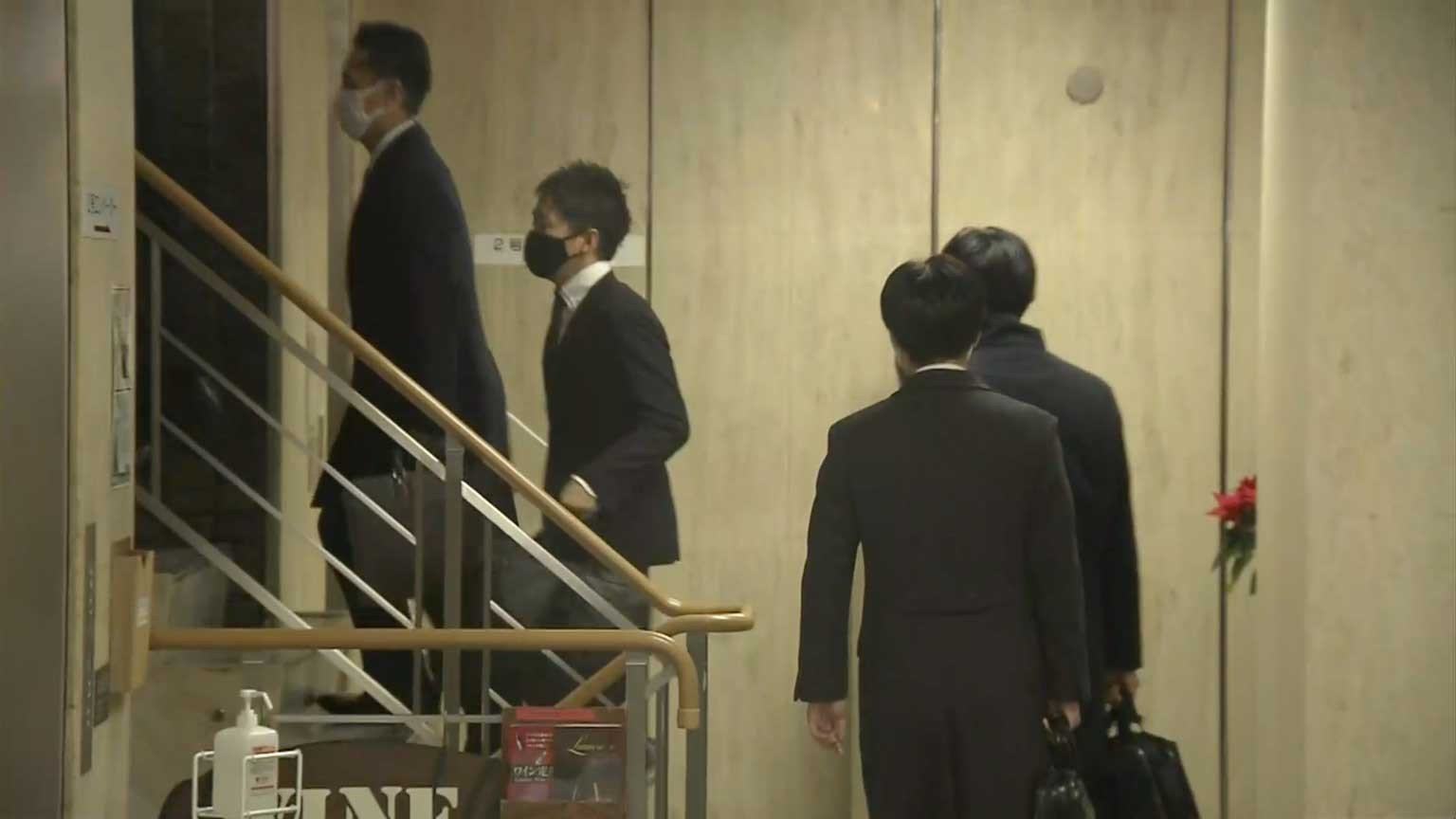Prosecutors on Tuesday raided the office of the LDP's largest faction — once led by the late Prime Minister Abe Shinzo — and the office of a faction headed by Lower House member Nikai Toshihiro, who formerly served as the party's secretary general. They are suspected of violating the political funds control law.
Sources say the factions are suspected of paying kickbacks to the offices of members who exceeded their quotas in fundraising-party ticket sales. The members failed to record the payments as revenue in their political fund reports.
The Kishida faction — which was until recently headed by Prime Minister Kishida Fumio — is also believed to have not reported some revenue from fundraising parties. But the scale of the actions varied among the three factions.
Abe faction
The Abe faction is believed to have set sales quotas for party tickets based on the positions of its members and the numbers of times they had been elected.
The kickbacks were reportedly not listed in the faction's political funds reports as expenditures and the lawmakers' political organizations also reportedly failed to report the money as income in their political fund reports.
Many of the lawmakers' offices belonging to the faction — including those of former Chief Cabinet Secretary Matsuno Hirokazu and five other senior members — are believed to have received kickbacks totaling 500 million yen over a five-year period ending in 2022.
Nikai faction
The Nikai faction is suspected of not having declared a total of 100 million yen between 2018-2022 in fundraising-party ticket sales that exceeded the quota.
Unlike the Abe faction, however, the Nikai faction reported the kickbacks as expenditures and the lawmakers' offices declared them as revenue.
Kishida faction
The Kishida faction, meanwhile, is believed to have not reported over 20 million yen in revenue from fundraising parties between 2018 to 2020.
Both the faction and the lawmakers' offices reported fundraising revenue, however, some ticket sales were excluded because the identities of the sellers were unknown.
Tokyo prosecutors are believed to be proceeding cautiously because the amount of the unreported revenue is relatively small compared to that of the Abe and Nikai factions.

Expert: Prosecutors gathering evidence
Former prosecutor and lawyer Takai Yasuyuki told NHK the investigation is focusing on whether the accounting chiefs and the secretary generals of the factions conspired to not report income.
"I believe Tuesday's search is aimed at gathering evidence that proves there were instructions to not report the money flow," Takai said. "Prosecutors want to collect material evidence that objectively shows the flow of money as well as the secretary generals' and lawmakers' records of exchanges."

Takai said differences reportedly exist between the Abe faction and the Nikai faction regarding what was not included in the political fund reports, and the maliciousness of the reports will be judged by them.
"It's also important to clarify if there was collusion between the accounting chiefs of the lawmakers' offices that received the kickbacks and the lawmakers," Takai added.
He said the investigators might deem the actions of the Abe faction to be more egregious than those of the Nikai faction because the latter declared the fundraising-party revenue, as did the lawmakers' offices.
